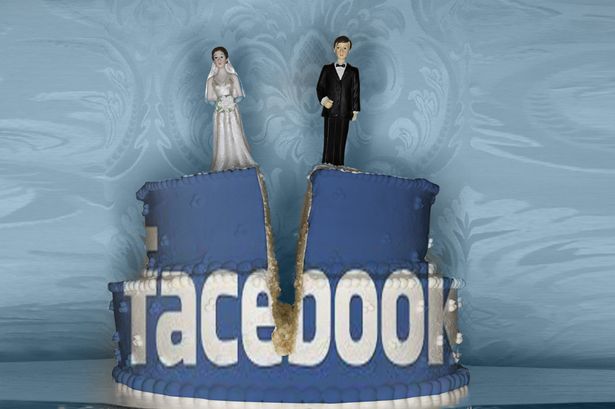1 out of 3 divorces are because of Facebook
 Facebook now crops up in a third of divorce cases over cheating and old flames.
Facebook now crops up in a third of divorce cases over cheating and old flames.
Facebook is now cited in a third of all divorce cases, research has shown.
A survey of legal firms’ caseloads revealed the social network is increasingly relied upon as proof of inappropriate behaviour.
Facebook unwittingly provides evidence of infidelity and new relationships, helps track people’s movements and records expenditure on everything from cars to holidays.
Leeds law firm Lake Legal said many cases revolved around social media users who got back in touch with old flames they hadn’t heard from in years.
Managing partner Lyn Ayrton said: “Social media provides an ongoing log of our lives. The sharing of written posts and pictures, often with geo-tagging, provides a record of activities that can be used in a court case.
“Often, if a partner refers to an impending bonus, a new job offer, or plans for a holiday, it may provide evidence that they are not telling the truth about their financial position. At the very least, it could call their credibility into question.
“It’s like having a massive public noticeboard.
“Somebody said she was not in a relationship with anybody new but then posted a message inviting everybody to a housewarming party for her and her boyfriend.”
Specialists at the firm examined over 200 cases and found Facebook was used by legal teams in just over a third of cases.
Julian Hawkhead, a managing partner at Stowe Family Law, said: “Photographs and comments made on these forums can be used as evidence of relationships or of a lifestyle which contradicts what people will otherwise try to portray.
“We regularly find clients coming to us with information they have found which is available in the public domain with proof of a relationship.
“However, the Internet can also provide a useful source of other information. Our in-house forensic accountancy team will often find rich pickings in gathering financial information through a Google search about a party, their location, where they have been and what they are doing with their lives.
“People need greater awareness of what information they are leaving about themselves on the Internet which is otherwise waiting to be found at the touch of a button.”
http://www.mirror.co.uk/news/technology-science/technology/facebook-now-crops-up-third-5011205
